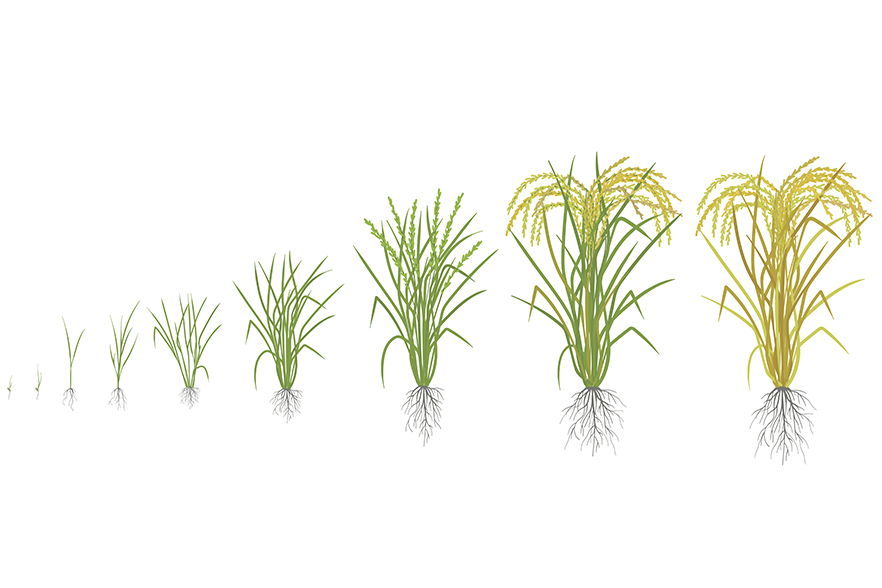Plant Sciences
MSc Coordinator of the Master in Plant Sciences
Prof. Dr. Sylvain Bischof (sylvain.bischof * uzh.ch)
For administrative questions, please contact Mattias von der Crone.
Study Coordinator
Dr. Karin Isler (studienkoordination * biol.uzh.ch)
OVERVIEW
Plants are essential for the functioning of our planet’s ecosystem. They use sunlight energy to fix atmospheric carbon and produce oxygen. Plants not only provide these two essential products to mankind but also are at the basis of the global food chain. Finally, plants constitute a treasure box of complex metabolic compounds and a renewable source of raw material for society.
Plants are incredibly diverse and populate large areas of the Earth. Being sessile, they have adapted to extremely different environmental conditions in a wide variety of ecological systems and, have acquired elaborated mechanisms to protect themselves from biotic and abiotic stresses.
MASTER'S DEGREE COURSE
The aim of the Master in Plant Sciences is to enable student to understand the function and evolution of plants from a molecular to a system-wide perspective. The program encompasses developmental biology of plants, the relationship between plants and pathogens, the way plants react to changing environmental conditions, ago-ecology and, the control and evolution of plant genomes and epigenomes.
The Master's program is based on block courses and special lectures that cover the structure, function, genetics and development of plants. Students can supplement their studies with the other courses at the University, ETH Zurich and the University of Basel, within the framework of the Zurich-Basel Plant Science Center.
GUIDELINES
Compulsory courses:
| BIO 338 | 00 ECTS | Introduction to Scientific Writing (one day in September or February) |
| BIO 505 | 60 ECTS | Master's thesis in Plant Sciences |
| BIO 520 | 10 ECTS | Integrated Knowledge in Biology (oral and written exam) |
Compulsory block courses:
Students are entitled to select their optional core modules from the full range of biology modules offered by the University of Zurich, ETHZ (551-0140-00L Epigenetics, 551-1120-00L Genes, Genomes and Genetic Systems etc.) and the Zurich-Basel Plant Science Center (https://www.plantsciences.uzh.ch/en.html). Two block courses must, however, be taken from the following list:
| BIO 282 | 06 ECTS | Methods in Molecular Plant Biology |
| BIO 285 | 06 ECTS | Genetic and Epigenetic Control of Plant Development |
| BIO 286 | 06 ECTS | Plant Sensing |
| BIO 287 | 06 ECTS | Plant Cell Wall Development |
| BIO 288 | 06 ECTS | Mechanisms of plant disease resistance against fungal pathogens (until 23FS) |
| BIO 289 | 06 ECTS | Mechanisms of Plant-Microbe-Interactions |
| BIO 294 | 06 ECTS | Bioinformatics for Comparative and Evolutionary Genomics |
| BIO 314 | 06 ECTS | Plant Epigenetics |
Students who have already completed four or more of these courses during their Bachelor’s degree can select other modules upon approval by the supervisor of their Master’s thesis. Students who have taken four or fewer block courses in plant science during their entire Bachelor’s and Master’s degree studies are strongly recommended to take additional plant science modules.
RESEARCH GROUPS LEADERS FOR MASTER THESES
Research in Plant Sciences at the Department of Plant and Microbial Biology spans from the understanding of fundamental molecular mechanisms to improving crop breeding technologies and agro-ecosystems.
| Prof. Dr. | Bischof Sylvain |
| Prof. Dr. | Grossniklaus Ueli |
| Prof. Dr. | Keller Beat |
| Prof. Dr. | Roulin Anne |
| Prof. Dr. | Shimizu Kentaro |
| Prof. Dr. | Simonini Sara |
| Prof. Dr. | van der Heijden |
| Prof. Dr. | Zipfel Cyril |
| Prof. Dr. | Züst Tobias |

